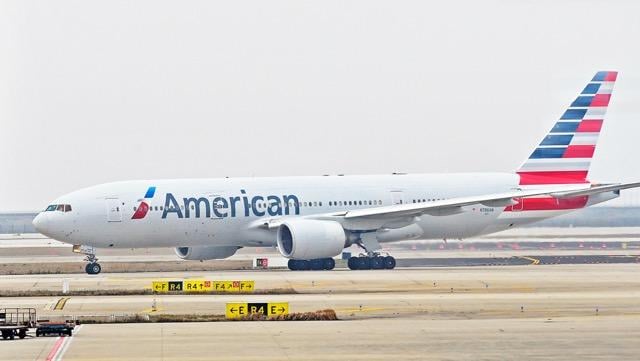
American Airlines has filed two separate requests with the U.S. Transportation Department (DOT) seeking temporary waivers on certain routes to both mainland China and Cuba during the upcoming 2025-26 winter season.
In its filing on China service, the carrier has asked the department to extend for another season its waiver of startup and dormancy conditions on 14 weekly U.S.-China frequencies that it does not plan to use between Oct. 26 and March 28, 2026.
The waiver, originally granted in 2020 at the onset of the pandemic, has been renewed multiple times as demand between the two countries has lagged pre-COVID levels.
American currently operates a daily Dallas Fort Worth-Shanghai Pudong flight using Boeing 787-9 aircraft, offering just under 4,000 two-way weekly seats in the market. The airline said that while the DOT has worked to restore parity in frequencies for U.S. and Chinese carriers, “the majority of pre-pandemic frequencies remain unoperated and likely will remain so through at least the 2025 winter season” due to demand shortfalls.
It comes as competition in the U.S.-China market remains well below pre-pandemic levels.
Delta Air Lines operates daily from Seattle and Detroit to Shanghai and three times-weekly from Los Angeles, which it resumed in June 2025. United Airlines has four routes: daily to Shanghai from Los Angeles and San Francisco, daily from San Francisco to Beijing Capital, and 3X-weekly from Los Angeles to Beijing Capital.
In total, U.S. carriers operate 48 weekly roundtrips between the U.S. and mainland China, with about 28,000 two-way seats, OAG Schedules Analyser data shows. This compares with nearly 73,000 seats and 136 weekly roundtrips in the same period of 2019.
Meanwhile, Chinese carriers offer 47 weekly flights with roughly 32,000 two-way seats, down from about 138,500 seats at this time before the pandemic.
American’s China request comes amid continuing U.S.-China trade tensions, which have been ongoing since 2018. However, on Aug. 11, the two countries extended their trade truce for another 90 days, narrowly avoiding a scheduled escalation in tariffs.
U.S. President Donald Trump signed an executive order to maintain the pause until Nov. 10, keeping the U.S. levy on Chinese imports at 30%, while Beijing announced a matching extension, retaining its 10% tariff on American goods.
In a separate motion, American has asked the DOT for a temporary dormancy waiver covering a portion of its U.S.-Cuba network for the 2025-26 winter season. The carrier cited “ongoing U.S.-Cuba market conditions” that continue to challenge passenger demand recovery, and said the relief would allow it to “better align its capacity and services with market conditions” while keeping the option to restore flights if required.
The request seeks to continue the summer 2025 suspensions into the winter season, covering several Miami-Cuba services. This includes a waiver on three of eight daily Miami-Havana roundtrips on Mondays, Thursdays, Fridays, Saturdays, and Sundays, and four on Tuesdays and Wednesdays; daily Miami roundtrips to Camaguey, Holguin and Matanzas/Varadero on selected days; daily Miami-Santiago de Cuba service on all days; and one of two daily Miami-Santa Clara flights.
American currently dominates the U.S.-Cuba market, with OAG data showing it operates 83 weekly flights to six Cuban cities from Miami, commanding a 68.4% seat capacity share. Southwest Airlines and Delta each provide 14 weekly flights to Havana, while United has 7%.
The Cuba filing follows United’s request to pause its Houston-Havana service amid sustained off-peak demand volatility. This comes amid tighter U.S. policy toward Cuba. In June, the Trump administration increased enforcement of the tourism ban and reinstated visa limits on certain Cuban officials.
American said it has no plans to exit any Cuban market it currently serves but is seeking flexibility to adjust service levels to evolving conditions.





